As the coronavirus pandemic picked up speed this year, some people’s jobs became a nonstop race to help save lives. Here, an emergency medicine doctor, vaccine trial volunteer, protective equipment manufacturer, public health director and others share what 2020 was like for them.
The following interviews have been edited for length and clarity.
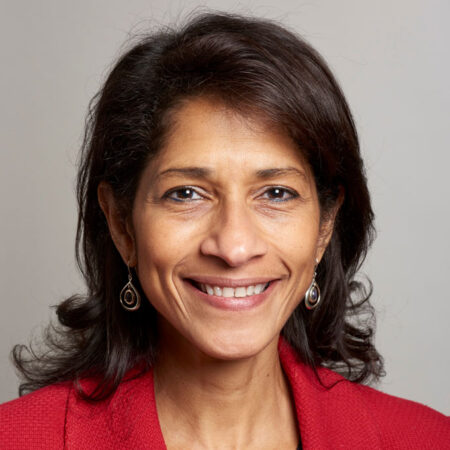
Yvette Calderon is chair of emergency medicine at Mount Sinai Beth Israel Hospital. She was on the front lines of New York’s City’s early pandemic surge.
Q: How did the pandemic change your work?
Calderon: It was a very stressful time. it was really important to check in with everyone — nursing staff, faculty, residents, the [physician’s assistants] — just to make sure we had a mental health check. We saw a lot of death, more than I’ve ever seen in a short period of time.
Q: Tell us about your experience.
Calderon: It was very isolating. You saw the fear on everyone’s face, not only the patients, but your peers, your staff. It was just incredibly tense. Yet there was nowhere else that I wanted to be.
Q: What surprised you about the public’s response to the pandemic?
Calderon: Nothing. New Yorkers are awesome. How New Yorkers came together in this crisis, from the 7 o’clock clapping to people going out of their way with food for health providers, making sure that the elderly had [what they needed], kids creating incredible masks and shields for our essential workers.
Q: What has made your job hard?
Calderon: Not knowing. I haven’t seen my mom in several months and I lost my father [to COVID] on April 6. Both of them had COVID. I made an appointment to see [Mom] this week. But [the nursing facility] can call me and say there’s another outbreak and then I can’t see her.
To be a physician that has spent your whole life taking care of patients, holding patients’ hands when they’re at the end of their life, crying with the patient’s family, and to not be able to be with my father was the biggest heartbreak of all.
Q: What gives you hope for the future?
Calderon: Several colleges and medical schools have reached out to me to do presentations on health disparities. What gives me hope is how many incredibly bright, passionate young individuals want to understand [why certain groups are getting more seriously ill]. And actually want to do something about it.
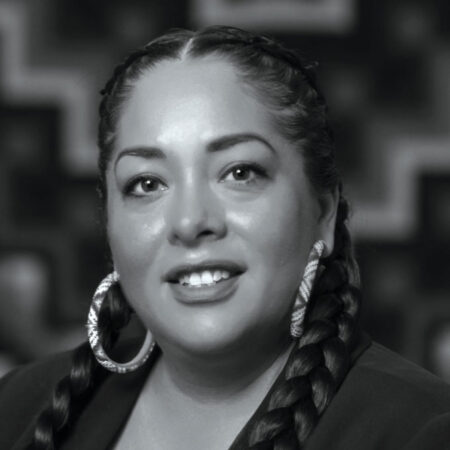
Abigail Echo-Hawk, a citizen of the Pawnee Nation of Oklahoma, is chief research officer at the Seattle Indian Health Board, a federally qualified health center that serves American Indians and Alaska Natives in the Puget Sound region. As director of the Urban Indian Health Institute, she focuses on gathering data on the more than 70 percent of American Indians and Alaska Natives who live off tribal reservation lands, and whose information is rarely collected or analyzed, making COVID-19 resource allocation difficult.
Q: How has the pandemic changed your work?
Echo-Hawk: I had to take my staff and redirect them, which means that work we’re doing on cancer prevention and HIV prevention is going to suffer. HIV is an epidemic within our community. But right now, COVID-19 is killing our people every single day.
Q: What do you want people to know about your experience?
Echo-Hawk: We are really suffering from a lack of resources, and that suffering is not new. As a result of the continuous underfunding of public health infrastructure within the Native community, and all public health infrastructure, this country set up a perfect environment for a pandemic to run wild.
Q: What has surprised you about the public’s response?
Echo-Hawk: Some tribal nations made incredible public health decisions before states did, before counties did, before cities did. They closed off their reservations, they shut down businesses, they worked to put together support systems to take care of their elders.
Q: What one thing is making your job hard?
Echo-Hawk: Access to good-quality data. We know that people of color are more at risk for COVID and for mortality from COVID. It is going to be imperative to prioritize folks who are most at risk for getting [a] vaccine. How are we going to know that those priority populations are actually the ones getting that vaccine?
Q: What gives you hope?
Echo-Hawk: Because of the pandemic, along with all the other things that have happened on addressing racial justice within the United States, there is a level of awareness in the U.S. about racial disparities, in health, in policing. It’s given me hope for the future, that we can build a new normal where all people have equal value and equal worth.
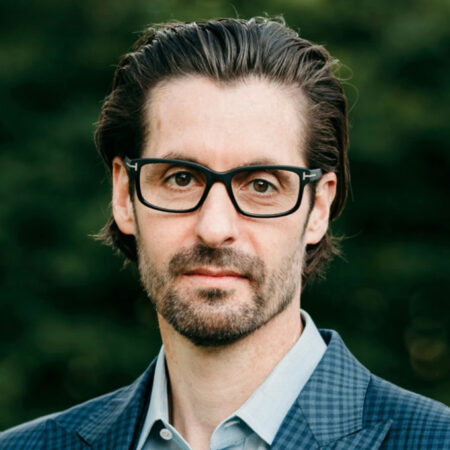
Dale Chappell is chief scientific officer of Humanigen, a biotech company in Burlingame, Calif., that makes the monoclonal antibody lenzilumab, developed to prevent an immune system overreaction known as a cytokine storm. The drug is in Phase II and Phase III clinical trials against COVID-19. Chappell is currently based outside Geneva.
Q: How has the pandemic changed your work?
Chappell: I’m a scientist by training, but I came to biotechnology initially as an investor. I joined the Humanigen board and then after discussion with the board and management team I became the full-time chief scientific officer. [With the pandemic,] I’ve dedicated full time to lenzilumab, making sure we can get this drug to patients as quickly as possible.
Q: How did your training prepare you to fight the pandemic?
Chappell: After medical school I did a postdoc fellowship at the National Institutes of Health in Bethesda, Md., and I studied [granulocyte-macrophage colony-stimulating factor], an immune system chemical that initiates the cytokine storm that can [occur] in COVID-19. So for me, this has come full circle. This is exactly what I should be doing at this moment in time.
Q: What have you learned?
Chappell: It’s been really interesting to watch the global pharma and biotech community all come together to try to address this pandemic. The information-sharing. The fact that people are willing to put their data out on preprint servers.
Q: What has surprised you about the public’s response?
Chappell: I’m living in Switzerland. The initial [European] lockdowns and quarantines [were] a pretty amazing act of humanity by everyone to try to flatten the curve, to keep the hospitals from being overrun.
Q: What is making your job hard to do?
Chappell: As a small company trying to take on a global pandemic, it’s always resources. We could use more people, we could use more clinical trial sites. We can’t get data fast enough. We need more hours in the day.
Q: What gives you hope for the future?
Chappell: The way governments around the world, and the biopharma industry, the way they’ve all come together to tackle this pandemic. We’ve learned a dramatic amount. In six, 12, 18 months’ time, I think we’re going to know a lot more. And hopefully, life will start to look a little more normal.
Q: What do you miss about your old life?
Chappell: The human interaction with colleagues. Going to scientific conferences, having that personal interaction. It’s tough to do by Zoom.
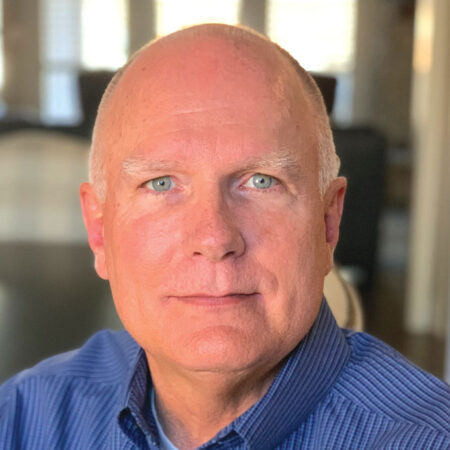
Michael Bowen is executive vice president of Prestige Ameritech in North Richland Hills, Texas, a maker of surgical masks and respirators. He predicted that a future epidemic would eat up U.S. supplies of personal protective equipment because most PPE is made in other countries.
Q: How has the pandemic changed your life?
Bowen: We work all the time, my business partner and I. I am the face of the company; I have the easy job. He is literally living at the office: He has an RV parked there and goes home only on weekends. Our sales have increased 600 percent. We’ve grown from 80 people to 260. We were selling 75,000 respirators per month. We’re now selling 5 million per month. By January or February we’ll be making 10 million a month.
Q: What do you want people to know about your experience?
Bowen: I’ve gotten thousands of emails in a day: “My daughter is a nurse and she’s been wearing the same mask for 30 days. Can you help me?” It was heartbreaking. I want people to know that America needs to make its own products.
Q: What have you learned during the pandemic?
Bowen: That humans aren’t very good at preparing for things. After this is over, people are going to forget. Hospitals are going to think: What are the odds of it happening again? I went through this before, in [the 2009] H1N1 [avian flu pandemic]. We had people calling, very emotional: I need help, we need masks. And then they didn’t stick with us.
Q: What do you miss about your old life?
Bowen: The ability to make everyone who calls me happy. We had great products and we served people right and if they had a problem or ran out of product we would put it in a truck and drive it there. I can’t do that anymore. I can’t help everyone.
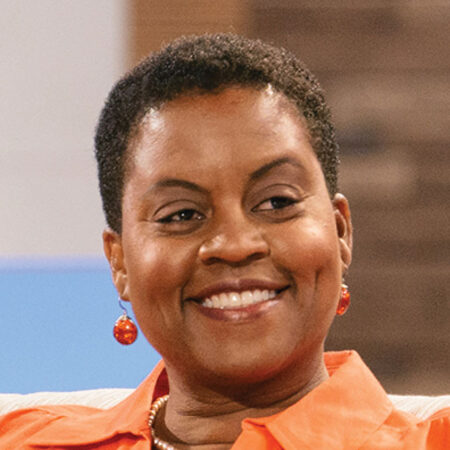
Lisa Fitzpatrick is a clinical professor of medicine at George Washington University School of Medicine and Health Sciences in Washington, D.C. She launched the company Grapevine Health to promote health literacy. She is also a coronavirus vaccine trial volunteer.
Q: What do you want people to know?
Fitzpatrick: I want people to know it’s always relevant to connect and listen to people. More than ever, the pandemic is showing how disconnected we are. The things I’m hearing on the street — is 5G transmitting coronavirus? Is there a chip in the vaccine? Is coronavirus real? — people are so distrustful of government and the health care system.
Q: Why did you join a vaccine trial?
Fitzpatrick: One day, a gentleman said he didn’t want to have anything to do with Trump’s vaccine. When I asked him what would have to happen for him to decide to take the vaccine, he said, “I would consider it if I saw some other Black people working on it.” And I thought, well, I’ve been a research investigator. I’m a Black woman. I’m a physician. I can be a bridge between science and the community and let my experience speak.
Q: What is making your job hard?
Fitzpatrick: Anything that’s wild and crazy spreads like wildfire. Credible messengers have to be part of the solution. When the lockdown first happened, people were texting me, calling me, sending me emails: Is this really true? Can you read this for me? Should I believe this? And I thought, I need to spring into action.
Q: What gives you hope?
Fitzpatrick: I’m never without hope. Because this too shall pass. A lot of damage is being done right now, but I don’t know that it’s irreparable. Black people have survived slavery; American Indians have survived the genocide. We just have to figure out how to become more resilient and deal with it.
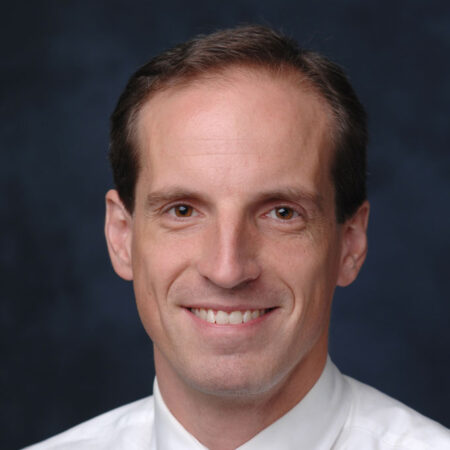
Evan J. Anderson is a pediatric infectious disease specialist at Emory University School of Medicine, in Atlanta, which has been conducting trials of Moderna’s Covid-19 vaccine and others. He supports testing promising vaccine candidates in children.
Q: Tell us about your experience.
Anderson: (Long pause) This has been a very challenging experience, having watched patients die with no therapeutic options. Now we have some major advances as far as helping to improve care. Patients are doing better than they did early in the pandemic and that’s been great.
Q: What have you learned during the pandemic?
Anderson: That a focused approach by industry, academics and the government can result in dramatic improvements in being able to move vaccines forward from the laboratory into early phase and now late-phase clinical trials, shortening the timelines for conducting those studies and for getting data out and available to the public.
Q: What has surprised you about the public’s response to the pandemic?
Anderson: The anti-science bent of segments of the population, and the antagonism toward basic public health interventions for decreasing SARS CoV-2 transmission. Plus the polls that indicate that a substantial percentage of the population will categorically refuse COVID-19 vaccines. That’s surprising. And discouraging, honestly.
Q: What is making your job hard?
Anderson: Just the cumulative exhaustion. We ramped up the beginning of March to sprint pace, and now I’ve been going at that pace for [many] months. At a certain point, you just can’t keep sprinting any longer.
Q: What gives you hope for the future?
Anderson: The high vaccine efficacy observed in the Moderna and Pfizer trials is really encouraging. If these vaccines (and potentially others as well) can be quickly distributed and people receive a highly effective vaccine, we will likely be seeing a return to a “new normal” sometime in 2021. To accomplish this, we still have much work to do, including evaluating these vaccines in pregnant women and children. There is much hope for better days ahead.
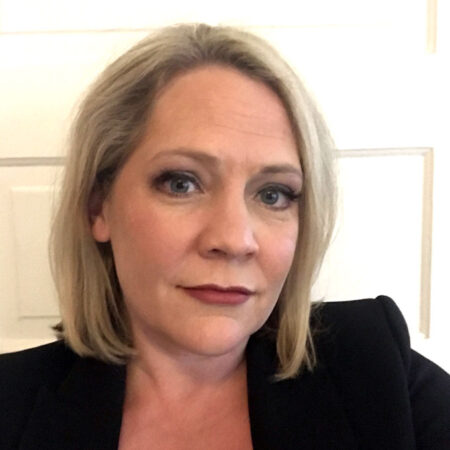
Virologist Angela Rasmussen of Columbia University Mailman School of Public Health, is living in Seattle while doing research on SARS CoV-2. Trying to combat misinformation has become a big part of her job.
Q: What do you want people to know about your experience?
Rasmussen: It’s been just as grueling for scientists as it has been for everybody else. It’s been incredibly frustrating and demoralizing to see expert advice — from epidemiologists, from physicians, from virologists like me — be ignored.
Q: What have you learned during the pandemic?
Rasmussen: How one very small virus that we didn’t even know about until December 30 last year — and actually, didn’t know was a coronavirus until January 10 this year — could profoundly affect the entire human species.
Q: What is making your job hard?
Rasmussen: The misinformation. It makes it 10 times harder for me to do my job if every time I write a paper, every time I write a perspective piece, every time I even tweet something, I have to think very carefully about what I say. Because it could be taken out of context and people could run with it in ways that are really harmful.
Q: What gives you hope for the future?
Rasmussen: Those of us who work with emerging viruses — we all know each other. This has given me opportunities to meet people who are approaching some of the same problems, but from a very different professional perspective. And that has been really wonderful. Hopefully it’s going to lead to some great research.
Q: What do you miss about your old life?
Rasmussen: I miss being able to think of my job as a job, and not as: What sort of crushing despair do I have to deal with today?
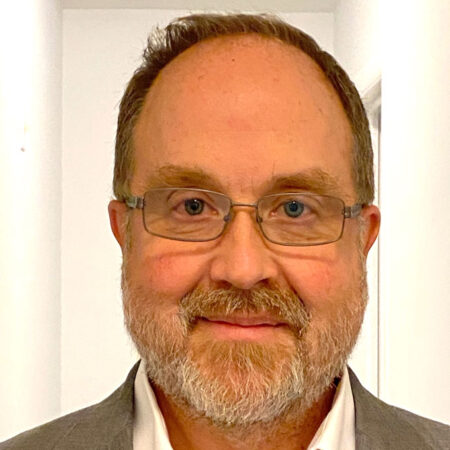
Thomas Quade is health commissioner of Geauga County, Ohio, managing a team of about two dozen people who enforce state law to protect public health.
Q: How has the pandemic changed your work?
Quade: Some of the work that we would normally do got put on hold. We didn’t start off the year with a lot of extra contact tracers and epidemiologists, for example, so we retrained our sanitarians, who normally inspect restaurants, to make COVID contact-tracing calls.
Q: What do you want people to know about your experience?
Quade: Folks at local health departments — and this is not just mine, this is across the country — are working harder than they’ve ever worked. And they weren’t slacking before. Public health in this country has been lean for the last 15 years; in the 2008 recession we lost about 25 percent of the U.S. public health workforce and it has not been replenished.
Q: What have you learned during the pandemic?
Quade: It reinforced that we really have to have relationships in the community. The United Way or YMCA, or your church or your school, can say the same things we would say, but it’s absorbed differently. We need those partners, otherwise the story is no longer about fighting the virus. The story is about fighting the people that are fighting the virus. And that’s not productive.
Q: What has surprised you about the public’s response?
Quade: That we’re getting pushback on what are very simple strategies. These are things that parents tell little kids: wash your hands, stay home when you’re sick. What surprised me is how successfully this has been made political, that a mask says you’re for something or against something.
Q: What gives you hope for the future?
Quade: (Long pause) What gives me hope is that, as tired and worn out as my colleagues are — not just here at this health department, but my national network of public health colleagues — they seem to have reserves of energy left. I think it’s because diehard public health professionals are mission-oriented. If it was just a job, none of us would be doing this.
"hear" - Google News
December 10, 2020 at 06:00PM
https://ift.tt/3m4jf9J
Hear from people taking action against COVID-19 - Science News
"hear" - Google News
https://ift.tt/2KTiH6k
https://ift.tt/2Wh3f9n
Bagikan Berita Ini















0 Response to "Hear from people taking action against COVID-19 - Science News"
Post a Comment